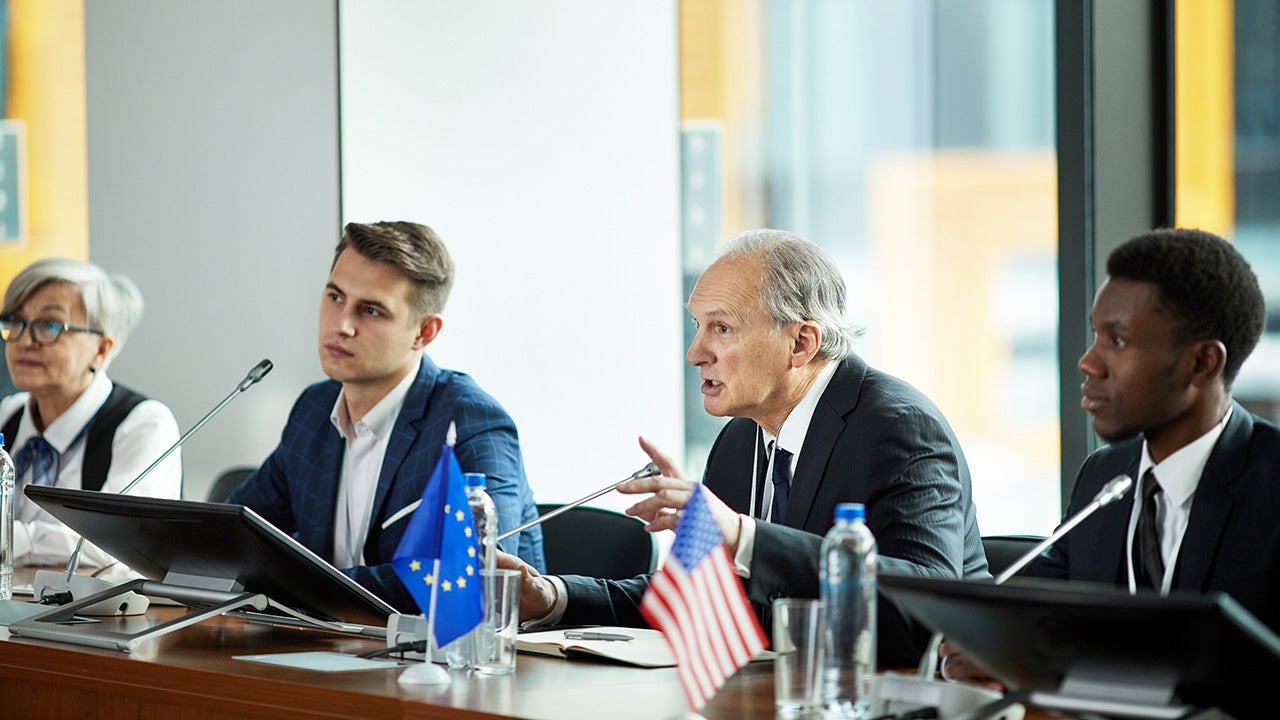On the 20th anniversary of the 9/11 attacks, the United States is in an unusual position. On a date that might have been about remembrance and recognition, the recent withdrawal of our military presence from Afghanistan has instead created a moment for soul-searching. We are asking ourselves if we are safer now than we were on that blue September morning, and where we should go from here.
This week, the Aspen Strategy Group held a half-day public discussion called Two Decades On: The 20th Anniversary of 9/11. Foreign policy leaders and experts recounted their memories of the day and the conditions and warning flags that led up to it, as well as the decisions that the US made after it—and how those decisions changed the world.
For the final panel of the event, after a day of thorough and honest discussion, ASG welcomed a trio of experts to explore what’s next for US foreign policy. Susan Glasser of The New Yorker, who moderated the panel, began by asking if we’ve entered a new, post 9/11 era, an assumption that’s been embraced rapidly after the Afghanistan withdrawal.
Frances Townsend, President George W. Bush’s former Homeland Security Advisor and an Aspen Strategy Group member, says we’re being hasty in our framing of foreign policy as discrete periods that do not impact one another. “Are we shutting the door on this post 9/11 history period? Not only are we not. We can’t,” she said. “If you had asked me if I could imagine this set of circumstances in which, 20 years later, the Taliban would be back ruling Afghanistan, I would have thought you were kidding, but here we are—and so no, we won’t be able to shut the door.”
Yet there was a big switch right after the attacks—if not of historical eras, of attitudinal ones, noted Jane Holl Lute, President Obama’s former Deputy Secretary of Homeland Security. “The real deep strategic question operating through the 90s into the early 2000s was ‘what will the United States do with its power?’” she said. “Since the Iraq war in 2003 and through to today, the major strategic question that’s on everyone’s mind is, ‘just how fragile is the American commitment to democratic values?’”
Distinguished Fellow and President Emerita of the Wilson Center Jane Harman, another Aspen Strategy Group member, added to that. “I think in many ways we are less safe than we were on 9/11, and that we squandered some enormous opportunities to build a more integrated world and to develop a strategy leading with soft power.”
Glasser pressed on asking if it is possible to have a national foreign policy during such a divisive period in US politics. Lute noted the difficulty, but also the opportunity. “This is an environment that permits any policy and compels no policy because you’re evenly divided, so you might as well have the satisfaction of doing the right thing,” she said. “And what the right thing for the United States, right now, is not for us to go back into a defensive crouch.”
We must be strong, and not merely militarily, the panelists agreed. While the country was focused on battling an ideology, China made gains that challenge the US on a variety of fronts. But we also face threats from domestic terrorism, and we can’t let our outward focus leave us vulnerable to malignant actors among us.
“I think our biggest geostrategic, political challenge is not losing faith in each other in this country and attending to our democracy,” Lute said.
You can watch this session and other parts of the event including discussions with author Lawrence Wright, former Secretary of Defense Robert Gates, and the 9/11 Commission’s Philip Zelikow, here.


